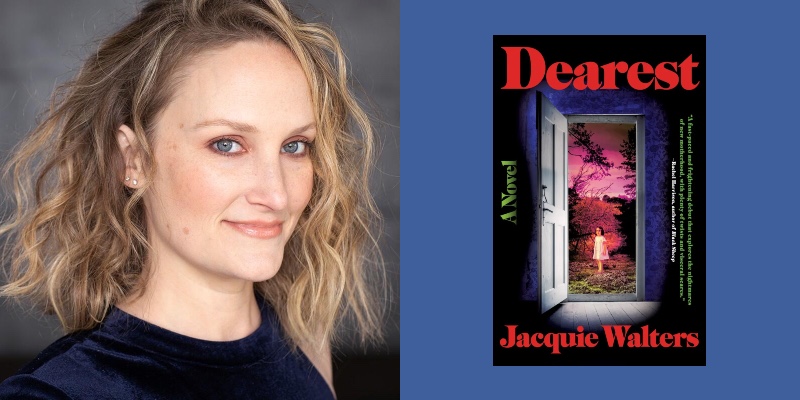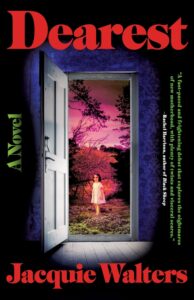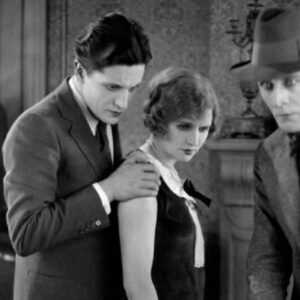In the weeks after having my first child, I found myself dipping in and out of a very dark place.
Around six o’clock every evening, I’d cry—my body heaving—thinking about the long night ahead. The midnight spell when I would feel more alone than I’d ever felt in my entire life. Somehow each hour of the night managed to stretch long beyond its allotted sixty minutes. Hopelessness enshrouded me like fog.
It was in one of these dips, during one of my many spelunking missions into some rabbit hole of doom, that I fell in love with the horror genre.
Five years ago, I never would have believed that my own debut novel would be a horror. And yet, here we are—Dearest published just last week—and I’m hoping to continue writing in the genre for years to come. Because the horror world is not only illuminating but also intoxicating.
I had long been obsessed with mysteries and thrillers, even in childhood, but I never considered myself a horror fan. All that changed, though, when someone recommended Stephen Graham Jones’s The Only Good Indians. I was enthralled. Fully immersed. I even found myself sobbing through the last chapters of that book—and when it was over, I was shocked. I had no idea a horror book could do that. No idea it could make me feel those feelings.
It was intensely cathartic and delightfully surprising.
So, naturally, I read more… I gobbled up the works of Sarah Langan, Grady Hendrix, Catriona Ward. All such unique voices, all pushing the boundaries of what defines the horror genre.
Here’s the thing—you’ve likely never heard anyone say, “I’m just not into comedy.”
That’s because no one says that. There are so many types of comedy that it would be preposterous to say you hate them all. Maybe you don’t like dark humor, but you love slapstick. Or maybe you hate parody but dry or deadpan makes you howl with laughter.
So, we all accept that in the broad spectrum of “comedy,” there’s probably something for everyone. But people tell me all the time: “I’m just not into horror.”
And I want so desperately to say something like, “I’ve been there! I promise! But I think you just haven’t found your brand of horror.” Because horror is so much more than that slasher film you accidentally watched back in the nineties that is now seared into your brain. Horror is clever and challenging and mysterious and powerful.
Horror is healing.
The genre’s foundation is built on the elementary emotion of fear. A basic human experience. A primal instinct that serves an evolutionary purpose. Fear is one of our earliest emotions. (Haven’t you seen “Inside Out?” Because I have. Approximately 947 times this month, actually, thanks to my two obsessed toddlers.)
We have all at some point been driven by fear. Every one of us has a frame of reference for being scared. Which means that there is no pretentiousness in horror. It’s universal. And so, we all have access to its healing power.
Maybe your first instinct tells you that “healing” and “horror” don’t belong in the same sentence. Maybe it tells you they don’t even belong on the same page. But the truth is: in fear, we are vulnerable. And in vulnerability, we can begin to heal.
The catch is, of course, that vulnerability is scary. And we humans are very good at running from fear. We have become adept at avoiding it. We’ve trained our whole lives for that.
But something magical happens when we read stories that ask us to tap into long-buried parts of ourselves. Suddenly, we have to face our stuff head-on. To really look at it. Examine it. Get to know its cracks. So that eventually we see that shadowy figure on the wall and realize it really is just a trick of the light. And through that realization, we take back our power. Instead of feeling shame about our fear, we lean into it. Maybe even enjoy it. By reading horror stories, we can quite literally redefine our relationship with fear.
For me, as a new mom, operating with very little sleep and an adult diaper full of leaky human fluids, my brain was often not my own. It wandered. It told stories. It terrified me. My mind was already a scary place to be—which meant that reading scary stories somehow made me feel closer to myself. While in everyday life, I felt myself slipping away, the books brought me back. The books made me feel less alone in the experience of losing my mind.
Horror holds up a mirror to humanity and—try as we might—we cannot look away. And what a powerful gift that is. To have the ability to tackle topics head-on that would normally turn people off. To know we are not alone, even—and most especially—in our most vulnerable times.
***





















